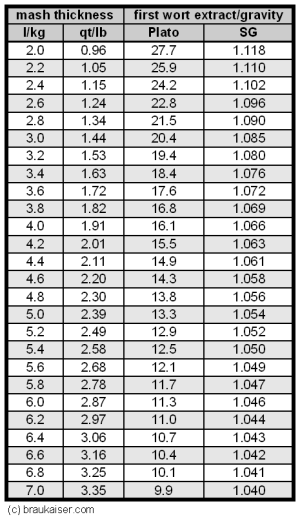This is my first post on the site; I just had to chime in here.
I just completed my fourth AG batch about two weeks ago. I have been wondering why my efficiency was relatively low (70%) as I thought I was following great procedure. After doing about an hour of reading on hbt, I feel pretty dumb.
I batch-sparge and I have been sparging with 168 degree water, b/c I was misreading the direction to sparge with the GRAIN BED at 168 degrees. I thought I was supposed to have my sparge water at 168. AND, because of my paranoia about "the Evil Tannins", I have been heating my sparge water to a slightly lower temperature (by about 2 degrees Celsius) - figuring that it was close enough to 168 and that even if I lost some extraction at least I would not be wasting a whole batch to the aforementioned ET's.
As an experiment I am going to brew the exact same recipe, with everything being a constant, except for my sparge temp - which will be 185 deg F.
Will post the difference in efficiency.



